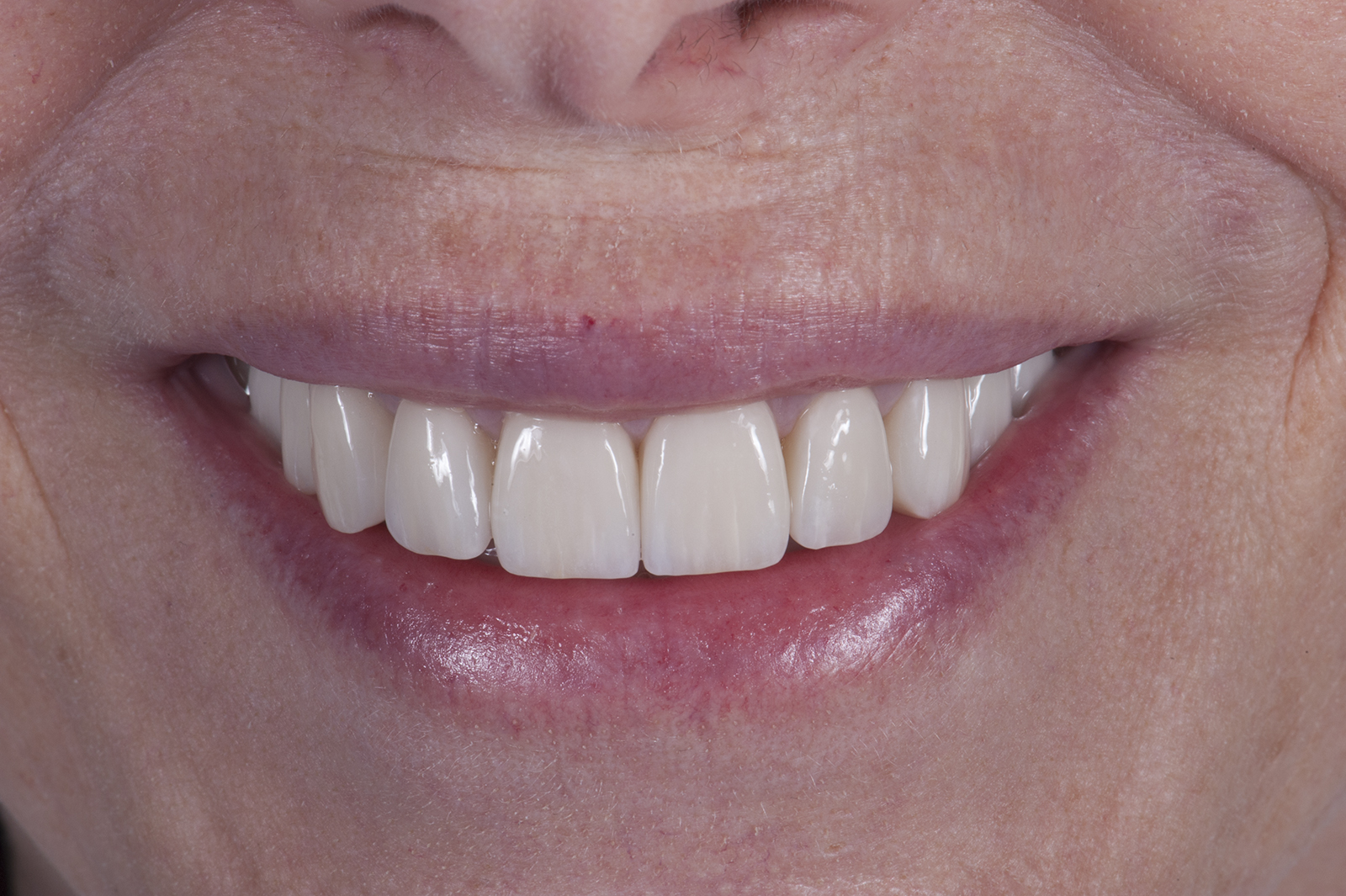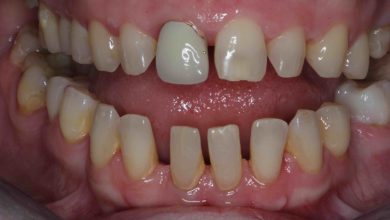Are Veneers Dental Implants?
No, veneers are not dental implants. Veneers are thin shells that are bonded to the front of teeth to improve their appearance, while dental implants are artificial tooth roots that are placed in the jawbone to support replacement teeth.
Veneers are a cosmetic solution for teeth that are stained, chipped, or improperly aligned, while dental implants are used to replace missing teeth. Veneers can be a less invasive and more affordable option for aesthetic improvements, whereas dental implants provide a permanent and functional solution for missing teeth.
Both options have their own benefits and considerations depending on the individual’s needs and oral health.
The Difference Between Veneers And Dental Implants
htmlVeneers are thin shells made from tooth-colored materials, usually porcelain or composite resin, that are custom-made to cover the front surface of teeth. They are used to correct various cosmetic concerns such as discoloration, chipped or worn teeth, uneven spacing, or misalignment. The process of getting veneers typically involves minimal tooth preparation, and they are bonded to the existing teeth with strong dental cement.
Dental implants are permanent replacement roots for missing teeth. They are typically made from a titanium post that is surgically placed into the jawbone. Once the implant integrates with the surrounding bone, a dental crown, bridge, or denture can be attached on top to restore both function and aesthetics. Dental implants provide a long-term solution for missing teeth and are considered the closest option to natural teeth in terms of their look, feel, and functionality.
Understanding Veneers
| Are Veneers Dental Implants? |
What Are Veneers? |
| Veneers are thin shells made from porcelain or composite resin that are bonded to the front surface of teeth. They are designed to enhance the appearance of teeth by improving their shape, color, and overall aesthetics. |
How Are Veneers Made? |
| Veneers are custom-made in a dental laboratory. First, a dentist will take impressions of your teeth, which will be used to create the veneers. The dentist will then prepare your teeth by removing a small amount of enamel to allow room for the veneers. Once the veneers are ready, they will be securely bonded to your teeth. |
Benefits Of Veneers |
| Veneers can help improve the appearance of stained, chipped, or misaligned teeth. They provide a natural-looking solution to enhance the overall aesthetics of your smile. Additionally, veneers are stain-resistant and durable. |
Procedure For Getting Veneers |
| The process of getting veneers typically involves multiple visits to the dentist. After an initial consultation, the dentist will prepare your teeth, take impressions, and provide temporary veneers. In the final visit, the temporary veneers are removed, and the permanent veneers are bonded to your teeth. |
Who Is A Good Candidate For Veneers? |
| Individuals with teeth that are crooked, discolored, chipped, or have gaps between them can be good candidates for veneers. However, a dentist will assess your oral health and determine if veneers are suitable for your specific case. |
Cost Of Veneers |
| The cost of veneers varies depending on factors such as the material used, the number of veneers required, and the location of the dental practice. It is best to consult with your dentist to get an accurate estimate. |
Understanding Dental Implants
htmlWhat are dental implants?
Dental implants are a form of dental restoration that replaces missing teeth. They are not the same as veneers, which are thin shells placed on the front surface of teeth to improve their appearance. Unlike veneers, dental implants are actually titanium posts that are surgically placed in the jawbone to act as artificial tooth roots.
How are dental implants placed?
The process of getting dental implants typically involves several steps. First, the dentist will assess the patient’s oral health and determine if they are a good candidate for implants. Then, the dental implant is surgically placed into the jawbone. Over time, the implant fuses with the bone through a process called osseointegration. Once the implant is securely integrated, an abutment and a custom-made prosthetic tooth, such as a crown, are attached to the implant.
Benefits of dental implants
Dental implants offer numerous benefits for patients with missing teeth. They provide a permanent and solution for tooth loss, improving both functionality and aesthetics. Implants are highly durable and can last a lifetime with proper care. They also promote bone health by preventing bone loss in the jaw. Additionally, dental implants restore natural speech and allow patients to eat their favorite foods without discomfort or difficulty.
Procedure for getting dental implants
The process of getting dental implants typically involves several steps. First, the dentist will assess the patient’s oral health and determine if they are a good candidate for implants. Then, the dental implant is surgically placed into the jawbone. Over time, the implant fuses with the bone through a process called osseointegration. Once the implant is securely integrated, an abutment and a custom-made prosthetic tooth, such as a crown, are attached to the implant.
Who is a good candidate for dental implants?
Ideal candidates for dental implants have good overall oral health and sufficient jawbone density to support the implant. They should not have any untreated gum diseases or conditions that could interfere with the healing process. A thorough evaluation by a dental professional is necessary to determine if a person is suitable for dental implants. The dentist will consider factors such as bone density, oral hygiene, and overall health to make an informed decision.
Cost of dental implants
The cost of dental implants can vary depending on several factors, including the number of implants needed, the complexity of the case, and the location of the dental practice. On average, the cost can range from $1,500 to $6,000 per implant. Additional costs, such as the cost of the crown or prosthesis, may also apply. Dental insurance plans may or may not cover the cost of dental implants, so it is important to check with the insurance provider beforehand.
Comparing Veneers And Dental Implants
Veneers and dental implants are both popular options for improving the appearance of your smile and restoring dental functionality. While they serve similar goals, they differ in terms of the materials used, longevity and durability, aesthetics and natural appearance, maintenance and care requirements, as well as cost-effectiveness.
Material used: Veneers are typically made from porcelain or composite resin, which can be matched to the shade of your natural teeth for a seamless look. Dental implants, on the other hand, are made from titanium or zirconia, materials that are known for their strength and biocompatibility.
Longevity and durability: Veneers can last anywhere from 10 to 15 years with proper care, while dental implants have a longer lifespan and can potentially last a lifetime.
Aesthetics and natural appearance: Both veneers and dental implants can provide a natural-looking smile. However, veneers are mainly used to cover the front surface of the teeth, while dental implants replace the entire tooth structure, including the root, resulting in a more natural feel and appearance.
Requirements for maintenance and care: Veneers require regular brushing, flossing, and dental visits to ensure their longevity. Dental implants, like natural teeth, should be maintained through daily brushing, flossing, and routine dental check-ups.
Cost-effectiveness: Veneers are generally less expensive than dental implants initially. However, considering the longevity and potential need for replacements over time, dental implants may prove to be more cost-effective in the long run.
Which Treatment Is Right For You?
Factors to consider when choosing between veneers and dental implants:
Advantages of Veneers:
- Improves the appearance of stained, chipped, or misaligned teeth
- Quick and non-invasive procedure
- No need for extensive reshaping of natural teeth
Disadvantages of Veneers:
- Irreversible process as a thin layer of enamel is removed
- May not be suitable for individuals with oral health issues
- Less durable than dental implants
Advantages of Dental Implants:
- Permanent solution for missing teeth
- Provides full functionality and natural appearance
- Prevents bone loss and maintains facial structure
Disadvantages of Dental Implants:
- Longer treatment process with surgery required
- Higher cost compared to veneers
- Requires good oral health for successful integration
Consultation with a dentist:
It is crucial to discuss your specific dental needs and preferences with a dentist before deciding on a treatment. They can evaluate your oral health, discuss the pros and cons of each option, and help you make an informed decision based on your individual circumstances.

Credit: www.tmprosthodontics.com
Frequently Asked Questions For Are Veneers Dental Implants?
What’s Better Implants Or Veneers?
Implants are better for replacing missing teeth, while veneers are used to improve the appearance of existing teeth. Implants are more permanent and provide stronger support, while veneers are a cosmetic solution. The choice depends on your specific dental needs and goals.
Are Dental Implants More Than Veneers?
Dental implants and veneers have different purposes. Implants replace missing teeth, while veneers are thin layers to improve tooth appearance.
Do Celebrities Have Veneers Or Implants?
Celebrities often opt for veneers or implants to enhance their smile. These dental procedures provide a natural-looking solution for crooked, stained, or missing teeth, giving them a picture-perfect smile.
Are Veneers Attached To Your Teeth?
Yes, veneers are attached to your teeth. They are thin custom-made shells made of porcelain that are bonded to the front surface of your teeth to improve their appearance and enhance your smile.
Conclusion
To sum it up, while veneers and dental implants are both dental procedures aimed at improving the appearance of a person’s teeth, they differ in their purpose and method. Veneers are thin shells that cover the front surface of teeth, correcting their color, shape, and size.
On the other hand, dental implants are artificial tooth roots that are surgically placed into the jawbone to support replacement teeth. Understanding these distinctions is crucial for making informed decisions about which option suits your specific dental needs.




